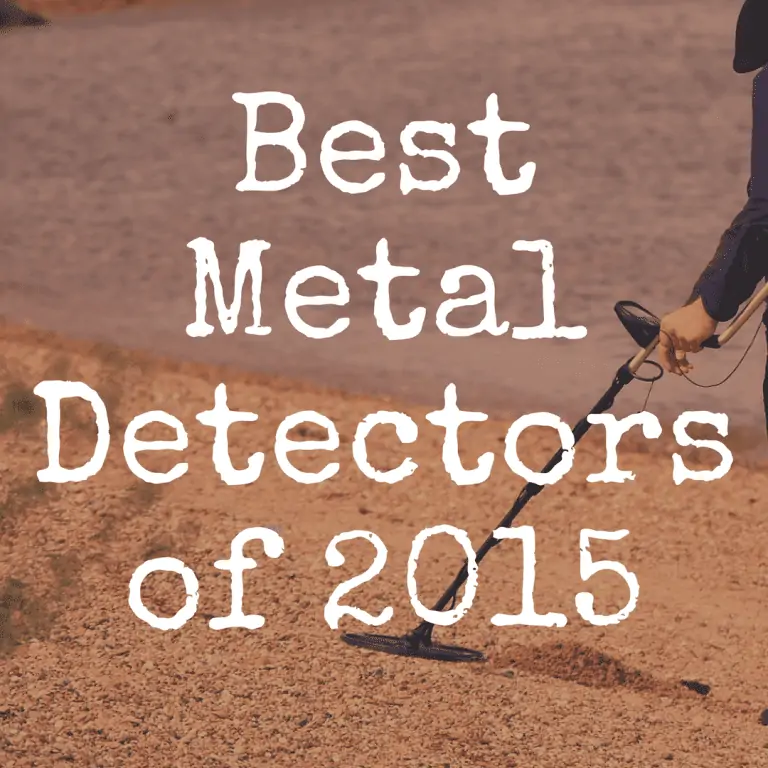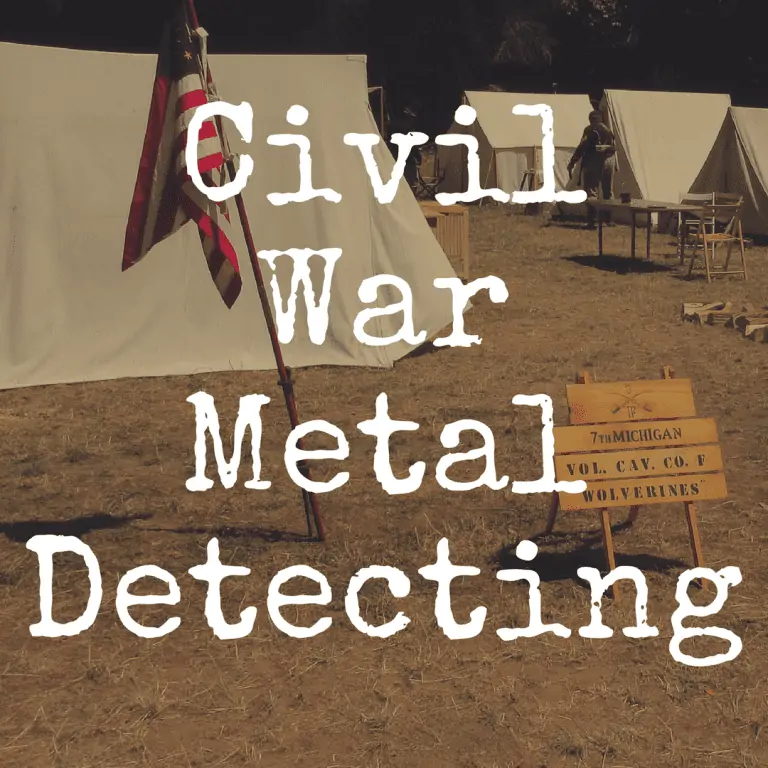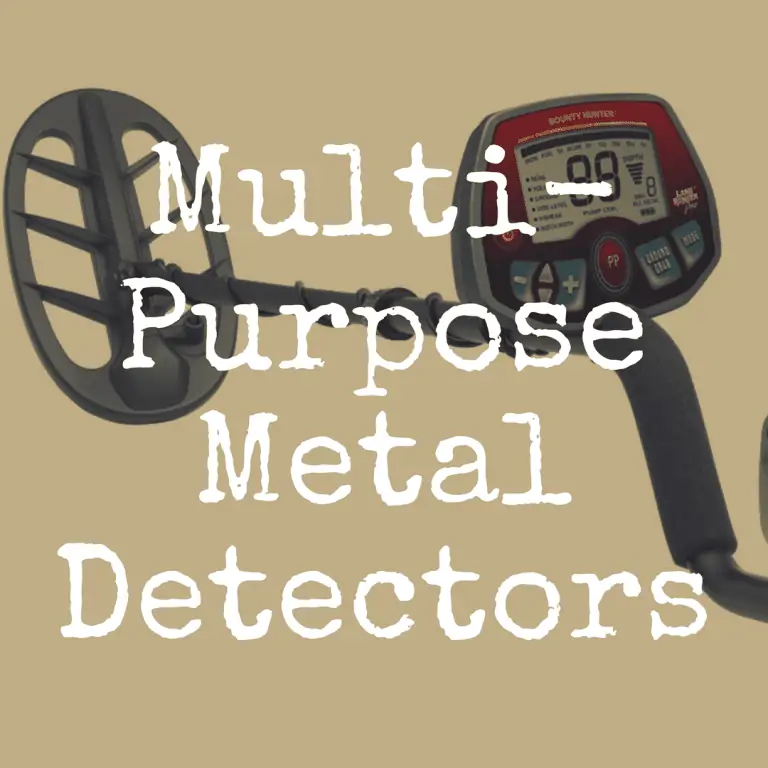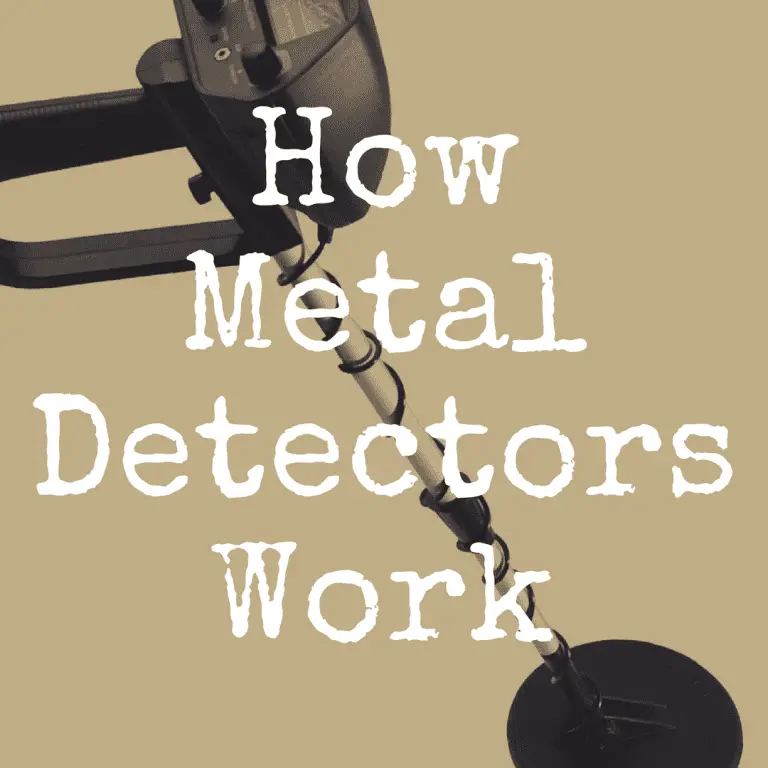Metal Detecting Laws: Where Can I Detect Treasure?
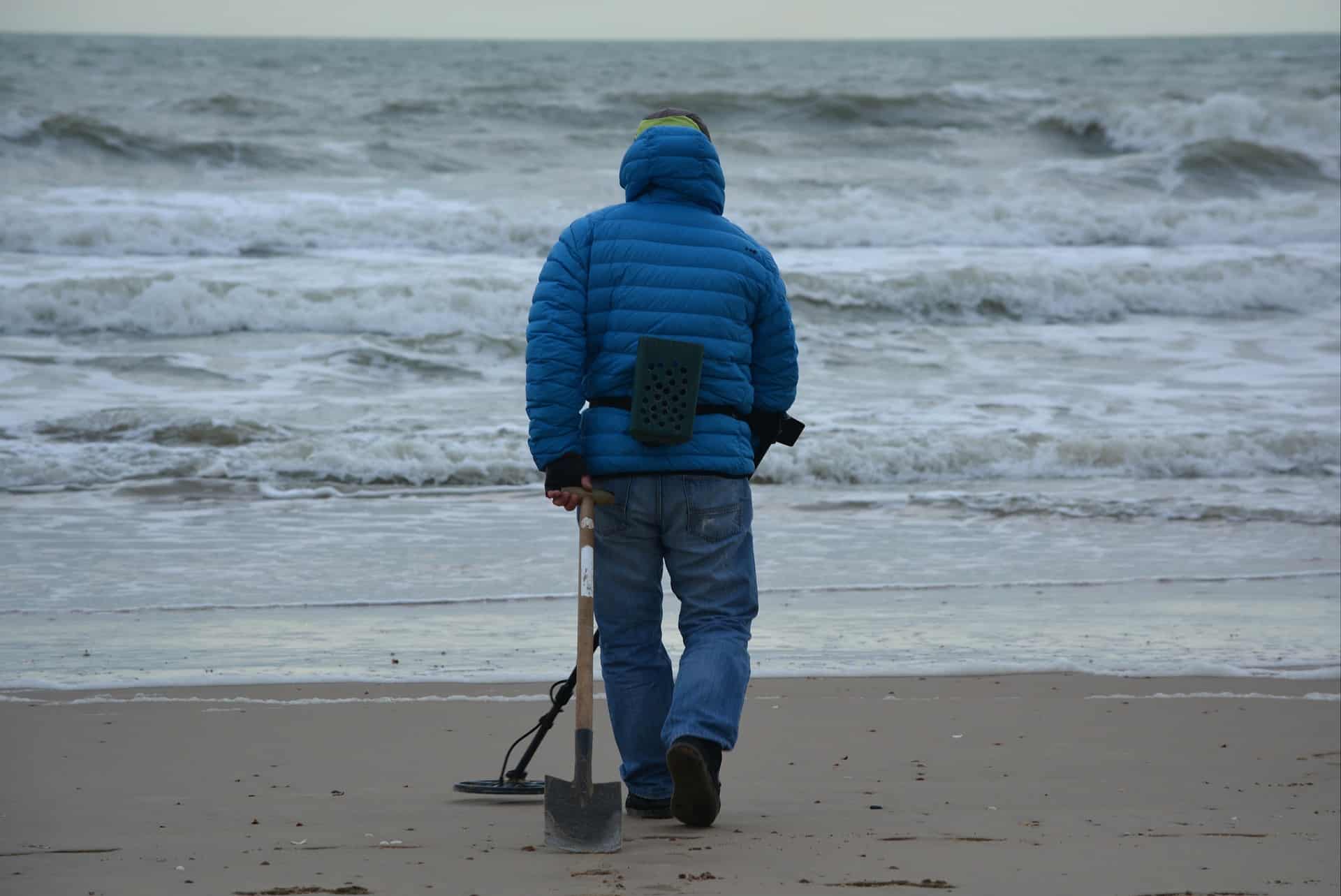
When you’ve been interested in metal detecting for years, but you’re just finally taking the plunge by buying your own machine, the excitement can be intense. From your very first signal, you can be hooked hard –- even if you just pull out a nail.
But once you tap out your own backyard, you start to feel a little antsy. Where will you dig next? And how will you know it’s okay to dig there in the first place?
Well, we’ll dig into all of these questions and much more in our in-depth article today.
And, just in case you’re on the hunt for a new metal detector, we’ve provided some of our favorite ones currently on the market in our interactive guide below:
| Photo | Model | Price | Features |
|---|---|---|---|
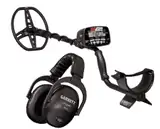 | Garrett AT Max | $$$ | Waterproof to 10 feet |
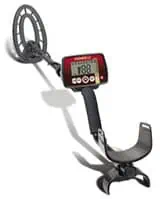 | Fisher F22 | $$ | 9″ Triangulated Concentric Coil |
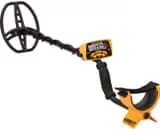 | Garrett Ace 400 | $$$ | 8.5 x 11" DD coil |
 | Minelab Vanquish 540 | $ | Search Modes: Coin, Relic, Jewelry, Custom, All Metal |
Some Great Places to Dig
If you’re stumped in your search for a great digging site that you’ll be able to find quality treasures at, you should consider the following popular places to dig:
- Private property
- Beaches
- Parks
- School yards
- Churches
- Old homes
- Battle sites
After some research into your town’s history, you think you’ve found a place that could hold some promise. And you learn it’s public ground, so you think it would be okay to dig there.

And below, please take a moment to view some of the best-selling metal detectors currently on sale at Amazon:
| BEST SELLERS |
|---|
| 1) Garrett AT MAX |
| 2) Bounty Hunter TK4 Tracker IV |
| 3) Bounty Hunter Gold Digger |
Before You Go
But before you grab your shovel and start digging holes, you need to look closer at the situation. Figuring out your next move is one of the most challenging parts of being a detectorist. And it’s the downside to metal detecting – if you don’t play it carefully, you could end up in hot water.
If you don’t have permission to dig on that property, you could face some stiff fines, misdemeanors, or even in some cases, felony charges where you will end up serving prison time. Ignorance isn’t a defense either – it’s up to you to do your research, to know where you can dig and where you can’t.
Playing It Dangerously
Almost every detectorist knows somebody in the hobby who skirts the law whenever he can when it comes to metal detecting.
I was at a metal detecting club meeting once when one member started showing me some of the best finds he had accumulated in his decade as a detectorist.
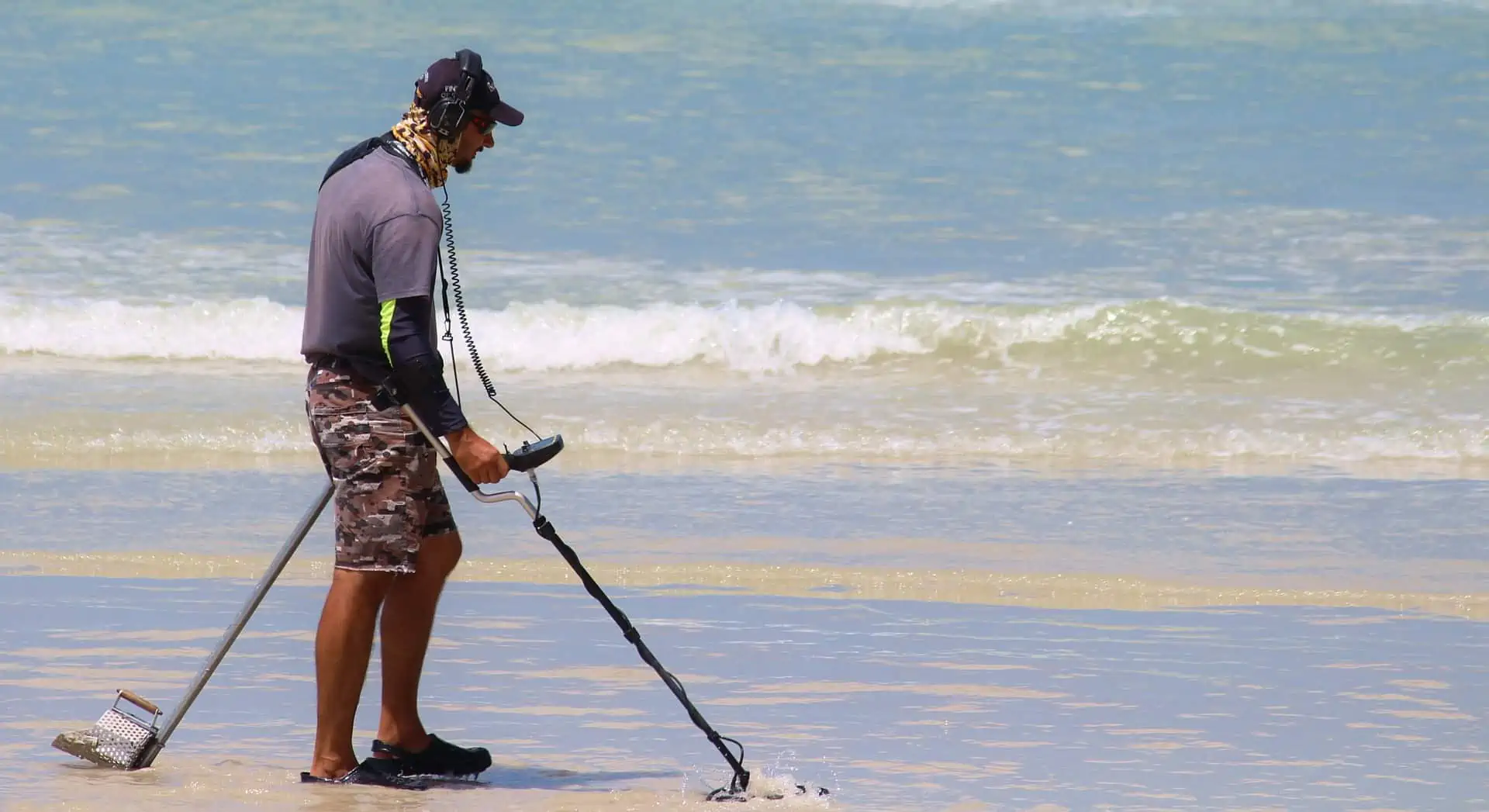
He would tell me a story about where he found each one, and several of his stories would include how he “technically” shouldn’t have been hunting on that property because he hadn’t secured permission. He’d give a little wink after saying that, like we were two buddies sharing an inside joke. Except we weren’t. I’ve never hunted on a site where I didn’t have permission, and I never knowingly will.
Here’s the thing: I like my freedom. I can’t imagine the heartbreak my family would feel if I had to serve a lengthy prison sentence because I couldn’t keep my hands off of someone else’s property. I love them too much to do that to them. And I don’t think I’d fair very well in prison anyway. There’s no metal detecting there.
So while you might know detectorists like that grade A jerk who bragged to me about his ill-gotten finds at that meeting, you don’t want to follow their path. People like that are the ones who give all detectorists a bad name.
Knowing the Law Isn’t Easy
Even when you want to do everything correctly, it is really difficult at times.
When you are talking about private property, the laws for metal detecting are pretty straightforward. You can generally dig as long as you have permission of the owner, but there are even exceptions to that rule. If that land is a known Native American burial site or an important historical or archaeological site, you won’t be allowed to dig, and you would face serious consequences if you tried.
Like everything else the government touches, there is no uniformity when it comes to what is allowed and what isn’t. Just when you think you’re covered, you find you aren’t. What’s allowed in one place may not be allowed in another.
Even rules about city properties vary from place to place. One city may allow metal detecting in its parks, while a neighboring city might not allow it at all. And you can’t rely on the city to post signs saying metal detecting is allowed or prohibited. Some cities will post those signs in their parks and some won’t.
The only way to know for certain is to stop by city hall and ask if the city has any ordinances on file prohibiting metal detecting. If they don’t, you should be good to go. But if the clerk isn’t sure, you may have to wait while she searches the city’s extensive ordinances.
So it’s best not to wait until the day you want to go metal detecting to pay city hall a visit. Give them some time to give you an informed answer. You don’t want to be ticketed with an ordinance violation while you’re digging up pop tops in your city’s park.
When it comes to schools, the olden-day mentality of schools being public property because our taxes pay for them is rapidly disintegrating. More than ever before, schools are making use of fences to enclose the school grounds and they are beginning to frown on people visiting the grounds outside of school hours.
I really don’t blame them with the safety concerns they face today.
If you have a school you’d like to detect at because it has been in operation for decades, it might be worth your time to put in a call to school officials.
If you want, you can start with the building principal, but it might save you some time to head straight to the superintendent with your request. That’s ultimately who will make the decision, and there’s a chance he might even take it to the school board. Since most school boards meet monthly, you might have a wait involved with this one.
If you’re a fan of beaches, you’re in luck. Most beaches allow metal detecting because, let’s face it, it’s hard to tell someone they can’t dig in the sand when that’s one of the most popular things to do at a beach.
But some counties don’t allow metal detecting, even on beaches. If the beach in question is part of a sanctuary, or is a piece of a state or federal park, you may not be allowed to detect there. Before digging, even at a beach, it’s wise to find out which entity is in charge of the beach and ask permission.
Digging at State or Federal Parks
Detecting at a state or federal park is the riskiest move you can make if you don’t have permission. You are practically begging to be arrested if you just decide to start digging without asking.
This is also one of the areas where you’ll find wide variations of what is permissible and what isn’t. In some states, you can’t detect at state parks without specific credentials. Others allow it, but only in certain areas and with a few restrictions.
In Michigan, for instance, metal detecting is allowed in every part of five of the state parks, but only in certain areas of other state parks. But in a long list of other parks in that state, absolutely no metal detecting is allowed. And there’s a catch in that state, and it’s one that should be respected –- you must show any items you find to park employees. They reserve the right to hold on to the items if they believe further investigation is warranted.
When you’re on federal grounds, in my opinion, you shouldn’t even bring your metal detecting equipment with you. Detecting on federal ground carries the stiffest penalties around so you should avoid even the appearance of detecting there.
Detecting in Other Countries
If the idea of detecting on federal land scares you, the thought of metal detecting outside of the U.S. is even more frightening still. If you don’t research the rules of the country you’re visiting thoroughly, you could be tossed in the slammer. I don’t know about you, but I really have no desire to get locked up in a foreign prison where the jailers think you’re an entitled U.S. citizen who is trying to rob their country of its treasures.
If you really want to detect on foreign soil where the history goes much further back than the known history here, you should check with the National Archaeological Laws of the country you’re visiting.
You should also tap a readily available resource long before you pack your bags. Start a correspondence with several metal detecting clubs in the country you’re traveling to.
Metal detecting is popular in other countries, but the laws we’re used to here are often much different than the ones they have there, and they aren’t uniform from country to country.
So contact several metal detecting clubs and ask what is allowed and where it’s permissible to hunt in the city you’re visiting. If you correspond enough and are polite, the club member may invite you to one of their meetings, or they may even offer to take you out on a hunt.
In many countries, if you find anything older than a century, or something of great historical significance, you’ll need to contact a historian and present your find. Whether you’ll get to keep that item depends upon which country you are in.
And no matter where you travel, do not trespass. It’s not worth it. Make sure you fill in all your holes and respect the land and the people living there. You are representing the U.S. and you don’t want to reinforce any negative impressions they have of us.
Be Smart
In the end, you may wind up doing more digging with your research and acquiring permission to metal detect than you do on the actual ground. I know it’s a pain, and I’m sure we all wish we lived in a world that had a few less restrictions. But we don’t and protecting important land is important, so we need to play by the rules.
If you enjoyed this article, please “like” our brand new Facebook page!
